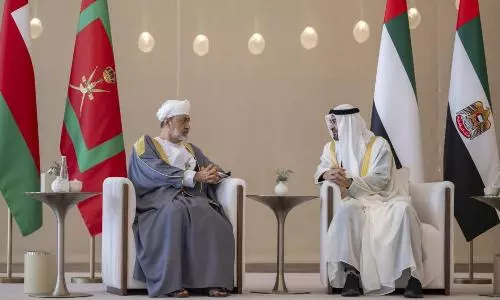
The image of the Supreme Court
text_fieldsIt is not unusual for appointments of the head of CBI to get into controversy under political considerations. But when the appointment of Rishi Kumar Shukla came about as a victory for the political interests of Narendra Modi, the loss of image was suffered by the Supreme Court and Chief Justice Ranjan Gogoi.
Gogoi had already borne the moral burden of his delegate AK Sikri having succumbed to the insistence of the prime minister at the high-power committee, to remove Alok Verma. And Alok Verma had the background of winning the legal battle against his ouster on the pretext of technicalities. In the new CBI director's appointment, the dissenting finger of Mallikarjun Kharge on the basis of the judgement of Supreme Court, gets pointed at the free and fearless positions of the chief justice.
The Supreme Court judgement of 1995 on the public interest litigation filed by Vineet Narain demanding that CBI be made independent and free from political interference, is striking in that it calls for transparency in the appointment of the director of CBI. The court, while granting the petitioner's demand to make CBI free from political interference, also expressed its disurbance at the non-observance of the criteria set in the law that governs it, i.e. Delhi Special Police Establishment Act, for the appointment of the director. The court order also strictly stipulated that a high-power committee consisting of the Prime Minister, Leader of the Opposition and Chief Justice of Supreme Court should appoint as director the most meritorious candidate from among the four senior-most batches of IPS selected solely on the basis of seniority, integrity and experience of eight years or more in the field of anti-corruption cases. The dissent Kharge has raised now, on the basis of the court order, is that the said order has been violated. When the committee met twice under the chairmanship of the prime minister and dispersed without a decision, the court expressed its disapproval over it and said that the 'in-charge' practice would not be allowed to continue any more. And that was how in the third round of meeting, and under stress of that situation, the mantle fell on Shukla whose name was not considered until then.It is one of the time-worn, but at the same time factually correct complaint against the CBI that it is a powerful weapon of the government for disarming an silencing opponents. For that very reason, many former CBI directors have been subjected to courts' censures and probes into their corruption and for overturning cases under political influence. One former CBI director Ranjit Sinha is facing trial on allegatdions of torpedoing the coal fields corruption case. In the said case, the court had even gone to the extent of blaming that the CBI had several masters. The court had also asked the question why the CBI could not be free from political interference and demanded that the government should be prepared to make a law that would allow CBI to function free. In fact, the chief justice has now missed two golden opportunities to save the CBI from the influence of the government.
The CJI is unlikely to get again such a rare opportunity to prevent the government's unbridled encroachment into the country's independent governing institutions such as the Reserve Bank, ICSSR, crime investigation bodies, Niti Ayog, university authorities, heads of judiciary and Central Statistical Organization.
The performance of Narendra Modi in the matter of governmental excesses is one that outdoes previous prime ministers. Eforts had started right from day one of his term to bring CBI under its sway. That process was set in motion when YC Modi, who had probed the Gujarat riots and given Modi a clean chit, was made Additional Director of CBI. Following this, the official who had handled the Ishrat Jahan fake encounter case, AK Sharma was appointed joint director. Seven Gujarat cadre officers, including Rakesh Asthana, were successively and quite unnaturally, put in charge of different levels of CBI. The only 'guilt' of Alok Verma was that he resisted the attempts of prime minister's office to bring the entire strata of CBI under its control through a series of transfers. The chief justice who joined hands with the government's interest in removing him, now has also sided with the government to appoint Shukla without meeting the criteria. Shukla is a controversial 'hero' in hunting extremists in Madhya Pradesh and a darling of Amit Shah. In times when the Congress had used the CBI to rein in political adversaries, the Supreme Court was there to speak out the truth. In the dark times when even the wings of 'the caged parrot' are getting clipped, the stance of the chief justice only deepen the concerns about the sense of justice of courts.























